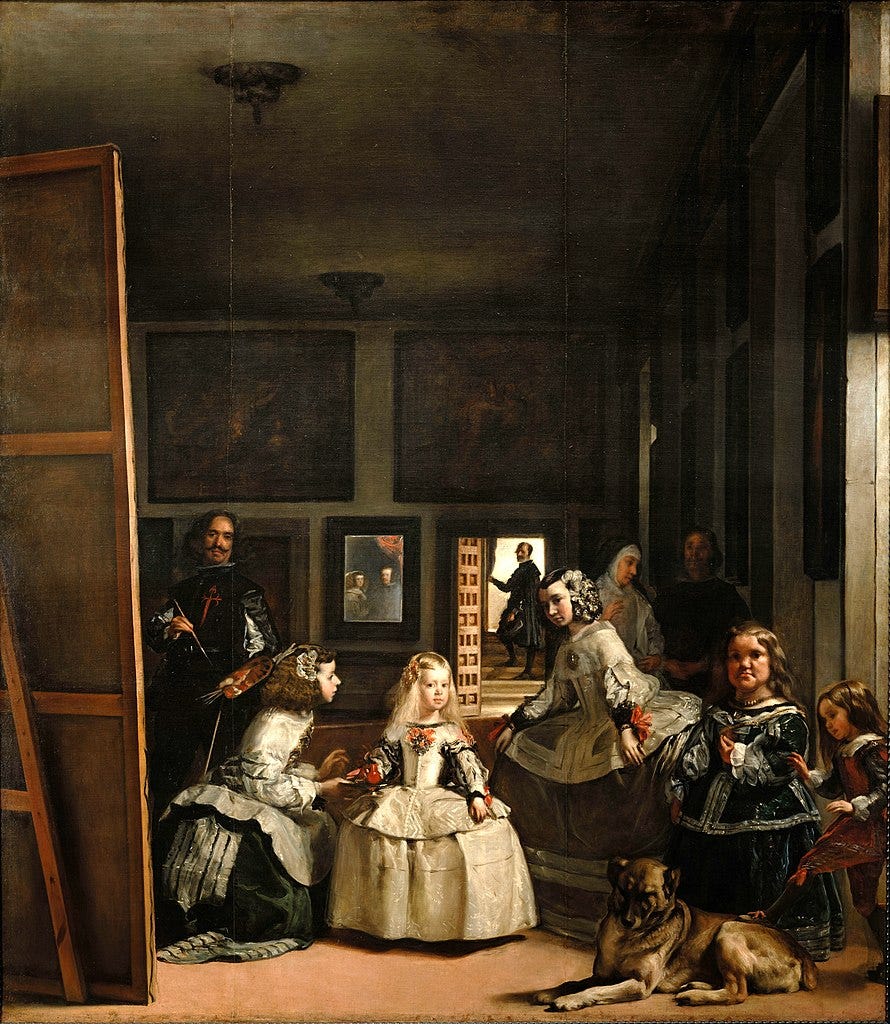There are thinkers whose philosophy exudes a fascinating, dark aura – and Michel Foucault undoubtedly belongs in this register. While Foucault has become the most quoted intellectual in the West, it is easy to forget that in his day, he occupied an outsider position that was so marginalized that my professor, the good K.O. Conrady, felt compelled to add a big question mark to my quotation of Foucault with the remark that this gentleman wasn't worth quoting in an Academic context after all – a knockout attempt that couldn't even begin to grasp the force of Foucault's thought structure (and which I remember more as a hopeless fumbling). So, what was the attraction that drew me, a young literature student, under Foucault's spell? The first book of his I came across was The Order of Things – and it was a confusingly fascinating read on several levels. Not only did this historical study feel like a survey of the intellectual field known as the epistêmê, but this work also made it clear, using the temporal rift that had opened up between the Middle Ages and modern times as an exemplum that a society doesn’t need to be clear about its own foundations. Moreover, the clear distinction between worldview and delusional system was blurred because we have to assume a collective unconscious. Consequently, as I delved deeper into Foucault's œuvre, it was no longer surprising that he'd preceded his Order of Things with a book on madness1. And so I learned that the Modern Age had imposed its unwillingness to acknowledge the madman, that he was the one who had to negotiate the splintering-off of the Enlightenment's dark side. Because this thought seemed plausible, I was willing to check it out for myself – with this insight turning into the dramaturgy of a radio play. Subsequently, I spent a good six months with a schizophrenic who shared his worldview with me (and the tape recorder). These conversations were remarkable in that Mr. L.'s mental figures, as insane as they seemed to me, had a compelling logic of their own. One day, as an exemplum, he surprised me by asking me whether I paid taxes – and when I answered in the affirmative, the question of whether I ate pork followed as if shot from a pistol. Yes, I said, somewhat uncomprehendingly. And he nodded knowingly enough for me to ask what the connection was between tax liability and pork consumption. Had I ever seen how pigs reacted when they came near a slaughterhouse? And when I had made my ignorance known, he explained to me in detail that when the pigs came close to the slaughterhouse, they smelled the blood and were overcome with fear – which is why the transporters had started sedating the pigs with beta-blockers to prevent general panic among their cargo. And so, half sedated, they were led to the slaughterhouse – and from there, they ended up on my plate. And because I would not only be eating the pork in this way but also the beta blocker, I would be subdued: a willing taxpayer, like everyone else. And with that, the meaning of the underlying social portrait became clear to me; I understood that, according to Mr. L.'s logic, mass animal husbandry and slaughter was only to turn the wild, unruly individual into a servile and compliant taxpayer. If, following this compelling logic, it was necessary to give up pork and beta-blockers from then on, it was a decision I couldn’t bring myself to make.
It was a similar reticence that subsequently prevented me from losing myself in the darkroom of Michel Foucault. However, initially, the reading was pure fascination, as if flashes of light kept flashing through the surrounding blackness. The only strange thing was how the fascination evaporated just as I, for my part, entered those realms he’d organized so clearly and convincingly in his Order of Things. His basic idea was by no means absurd. If there was one worldview characterizing the thinking of modern times, it was the logic of representation. The cabinets of mirrors, the art of trompe-l'œil, the French park: all these were tricks with which Western culture had erected hitherto unrivaled monuments to itself. And because it isn’t absurd to see something like an apotheosis of power in this, Foucault set his ›Code of Representation,‹ based on an image analysis of Velázquez's Las Meninas, in the hall of mirrors of the Spanish imperial court, at the center of power.
However, the price of this logic of glorification was that power became a black box. If this power battery served Foucault's rhetoric, it did so only at the price of a certain illegibility. For my part, in writing Metamorphosen von Raum und Zeit [Metamorphosis of Space and Time], I’d decided to pursue the genealogy of this thinking, and so a whole host of things came into view that didn’t want to go together with it – indeed, that were ultimately diametrically opposed to Foucault's narrative. While Foucault had set his story in the 17th century, it was evident that the concept of representation had already been given an auratic charge in the 13th century. While the repraesentatio had initially been understood, following the scholastic-religious interpretation, as the Registry of Saved Souls in Heaven's Book of Life, the religious aura faded proportionally as earthly authorities took its place. While this privilege was initially reserved for medieval kings, the monetary theory of Nicole Oresme2 made it clear representation amounted to the foundation of a generally reliable monetary system, that is, more generally: a monetary res publica – or what we today like to call again with recourse to painting, a regulatory framework [Ordnungsrahmen]. Although the Medieval commonwealths failed in this because of their feudal order, in the course of history and annular cycles, it was possible to trace how the idea of representation in the private sphere took on an overpowering importance. This was the very reason why I included a precise analysis of Jan van Eyck's Arnolfini Wedding in my Metamorphosen.
Not only was this the first time that the mirror (which in Foucault's case was the principal agent) became the subject of painting but it was also remarkable that this was the first painting in art history in which a painter had placed himself in the mirror and affixed his signature and a date: Johannes de Eyck fuit hic, 1432. And because the portrayed husband, Giovanni Arnolfini, was also a money changer, the whole setting was deeply interwoven with the symbolic order of money. That Foucault didn't address any of this but instead categorically subsumed it under power made it clear that he was replacing the dark aura of power for an evolving structure of thought – a logic that had more to do with Mr. L's conspiracy theory than with the history of representation. In this respect, the sense of intellectual suppression was tangible. In this way, Foucault had rid himself of all of the grievances he would otherwise have had to deal with: the question of religion, of desire, of the historical complexity that had turned an originally taboo complex of ideas into a universal language. How had the Registry of Saved Souls in Heaven's Book of Life been transformed into an earthly Power Battery? – That was the question that Foucault's work failed to answer. What irritated me most, however, was that there was no reference in his Order of Things to the text that his entire book was indebted to – which I had come across while thinking about the history of representation. It was a short essay by Ernst Cassirer entitled Substanzbegriff und Funktionsbegriff (Concept of Substance and Concept of Function)3, which was the starting point for his Philosophy of Symbolic forms (which had enabled art historians such as Ernst Panofsky to understand the logic of central perspective). In this essay, Foucault described a metamorphosis of thought: from the Middle Ages thinking of Antiquity's substance towards the Modern Age's concept of function. That Foucault had simply let this text, which he had studied closely, fall by the wayside cast a slight doubt on his Academic integrity. It also made it clear that Foucault preferred the latter when choosing between honesty and power. And this was precisely what was wrong with his thinking: by fixating on the dark side of power, he led the reader into an intellectual darkroom, with the result that what his thinking promised to enlighten was not illuminated but, on the contrary, mutated into a darkroom. And that here, as we know, fetishism reigns supreme here.
Because in Foucault's thinking, power is the Alpha and Omega, the beginning and the end, it's no wonder this philosophy finds its apotheosis in Bentham's Panopticon, this tower that looms unmanned and masterless over society. And because this ultimately amounts to a form of dystopia, a televisor of Orwellian provenance, Foucault sees the theorist's task as deconstructing the hidden logic of this overwhelming Power Pole of Central Perspective – in a similarly cool and dissecting manner as his hated surgeon father used to go about his business. If Foucault brought this intellectual style to mastery, he left Noam Chomsky, who had entered into an argument with him, stunned – and elicited a confession that he'd never met anyone as amoral as Foucault. This display of coolness may have come across as a mask of intellectual unassailability, but Foucault's excursion into the revolutionary Iran of Ayatollah Khomeini reveals this form of intellectual subversion to have more to do with a Discomfort with Modernity than with sober vivisection. It’s evident that Foucault, who suddenly found himself in the position of a journalist as a contemporary witness, was so swept away by the events themselves that he could enthusiastically speak of a ›spiritual revolution‹. Because what took place there was directed against a modernity that, as Foucault himself noted, had become a burden for everyone. With this profoundly anti-modern essential trait in mind, it becomes understandable why Foucault was able to turn to neoliberalism a little later – with some sympathy. And this wasn't because he'd suddenly discovered he had a passion for economics, but because he understood the privatization logic (unfriendly takeover) as a form of economic patricide, a movement with which the individual could free himself from the corset of representation. This move foreshadowed the steps towards his later work. And, it seems Foucault must have grown weary of his fixation on power and its fetishes – there is this strange turn to the technologies of the self, which he deals with in his late work The History of Sexuality. But strangely, here too, the fixation on power stands in the way. Consequently, Foucault, already infected with AIDS, couldn’t any longer read the history of Greek pedophilia as a form of desire but now as a game of power and discipline – thus remaining true to his theme of surveillance and punishment. Now, this topic could be safely left to a biographer – if only Foucault's thought structure hadn’t conquered the minds of all imaginable contemporaries. But because this has happened and because, alongside Bentham's panopticon, the figure of an equally mindless and perverse power dispositive now dominates people's minds (which today we've become accustomed to incriminating as being toxic), is an oddity of the first order. Consequently, we are no longer dealing with the personal idiosyncrasy or the father-hating coolness of a singular thinker but with a king-sized darkroom. For this reason, the question of where the strengths, but also the fundamental flaws, of Foucault's thinking lie is of the utmost urgency, including the political ones – all the more so as the contemporary theorists making use of the Foucauldian dispositive have only dealt with their mentor in a highly superficial manner. Nothing could be further from my mind than a demonization that brands Foucault as a cultural Marxist and blames him for the excesses of the woken zeitgeist. If Foucault has any merit, it lies in having made it clear, perhaps even more so than Cassirer, that symbolic forms shape our understanding of the world – and that their self-evidence harbors a dark secret. What he can be blamed for is that he didn't think this profound thought through to the end – thus betraying his self-chosen claim to present an archaeology of knowledge. In this sense, it is Foucault's sins of omission that have a fatal effect on his intellectual rearguard: he understands power as a fetish and a ready-made, all the while scrupulously avoiding examining its genealogy. And so what could have been a form of enlightenment about the collective unconscious becomes a form of obscurantism: the darkroom of Monsieur Foucault. This may emanate a particular fascination, but it only lasts as long as you don't enter this room – and? Well, what can you do? You switch on the light – and end up in a world that looks completely different: voilà!
Postscript
Occasionally, when I have a schnitzel on my plate, I think of Mr. L. – and how he broke down the connection between madness and society for me. And who knows: maybe a long, long time ago, when the catasto and the tax obligation were introduced into the world, there was a world spirit that devised the perfidious logic of slaughterhouses and beta blockers. Well then. Bon appétit!
Translation: Hopkins Stanley and Martin Burckhardt
Related Topics
The Identity Trap
This is a translation of the German conversation. The video can be seen here: Martin Burckhardt: Your book The Identity Trap reminded me a little of Susan Neumann's last book, with whom I had a long conversation about on Ex nihilo. Her book, like yours, deals with an ideology commonly referred to as
Histoire de la folie à l'âge classique – Folie et déraison, Paris, 1961 [History of Madness, Routledge, 2006]. [Translator’s note]
Nicole Oresme’s treatise outlines against the counterfeit wars of the 14th century, the general theory of Money that’s still considered the foundation of modern Economics. See The De moneta of N. Oresme and English Mint Documents, trans. C. Johnson, London, 1956. [Translator’s note]
Substanzbegriff und Funktionsbegriff, written in 1910, is Cassier’s reflection on the Kantian foundations of mathematics and relativity theory. It is considered one of the foundational texts of Modernity’s Philosophy of Science, along with his 1923 Einsteinschen Relativitätstheorie[Einstein's Theory of Relativity.] He went on to write the volumes of his Philosophie der symbolischen Formen [Philosophy of Symbolic Forms] between 1923-29, arguing that man is a symbolic animal. See Cassier, E – Substanzbegriff und Funktionsbegriff:Untersuchungen über die Grundfragen der Erkenntniskritik, 1910, Berlin [Substance And Function And Einsteins Theory Of Relativity, 1923, Chicago]. [Translator’s note]










